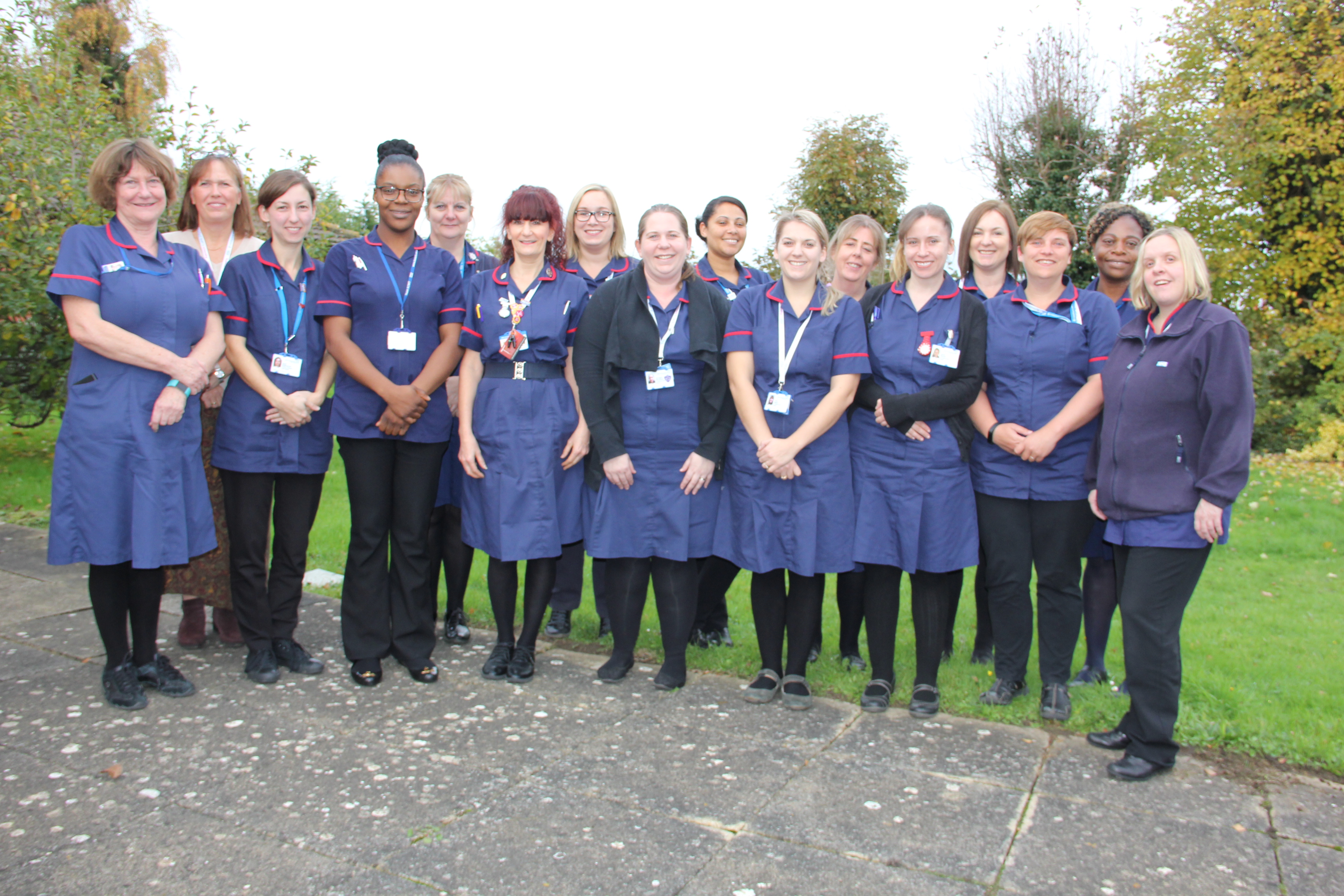Providing the best care for patients who are frail and not missing “golden opportunities” is at the heart of a quality improvement project within our Frailty Service.
The project aims to make sure patients are cared for in the best place for them, to reduce the amount of frail people who are taken to hospital, when this may be unnecessary, and also to make sure the wishes of patients are taken into account.
The idea is also to reduce readmission rates and target patients who may not yet have even been diagnosed as being frail, so that preventative work can be carried out.
The project
The project started in April 2019 and involves a team of complex care nurses in the frailty service, working closely with health and social care partners, including GPs, hospitals, the ambulance service, Kent County Council and West Kent Clinical Commissioning Group.
It involves rolling out a comprehensive geriatric assessment, within a shared IT platform, which everyone in the multi-disciplinary team can access, to ensure the most appropriate decisions are made for people.
It has already resulted in patients being better supported and is helping their wishes, including where they want to die, where they want to be cared for and what is important to them, being taken into account much more.
Steph Rhodes, Head of Long Term Services in west Kent, who is leading the project, said: “We were finding that too many patients were being taken to accident and emergency (A&E), or had a short stay in hospital, when that might not be the best place for them and for their needs.
“Some patients would be sent straight home again, which is hugely unsettling for anyone, but in particular for elderly patients and especially those with dementia. Many could have stayed at home, with support.
“The project is helping us to support patients and carers more. As a result of doing the comprehensive geriatric assessments, we give each patient a personalised care plan.
“As well as providing health education and promotion, we can also put measures in place to support the patient and family in their own home and in many cases preventing unplanned, short-term hospital admissions. We can work with patients to help prevent further falls if this has been a problem, or we can support with social prescribing and can point them in the right direction if loneliness or depression is affecting their health.*
Comprehensive geriatric assessment
“We are working towards having one comprehensive geriatric assessment, an electronic document accessible to all agencies which come into contact with the patient. We believe this could benefit around 2,000 patients in west Kent, per year.
“For example, it might be that having their dog is the most important thing for them or perhaps that they want to stay mobile or be able to attend their regular clubs.”
In January 2020, Steph and colleagues will start to analyse data collected so far. The trust’s West Kent Frailty Team is already working closely with Maidstone Hospital and is planning to do the same with Pembury Hospital. Our nurses attend the board round in each hospital frailty unit, to identify patients who might need further support at home. They are liaising too with local frailty GP leads to support joined up working. This, and the support to the virtual multi-disciplinary teams, allows experts to review a patient needs and develop a management plan.
Steph said: “We’ve collected quantitative and qualitative data. We’ve spoken to patients who have ended up in A&E and found that sometimes we have missed golden opportunities, which might have prevented them going into hospital, which is what we want to address.
“Early signs from our work are that patients are happier with the service with are providing and we have also seen a reduction in hospital admissions.”
* Social prescribing, sometimes referred to as community referral, is a means of enabling GPs, nurses and other health professionals, to refer people to a range of local, non-clinical services.


